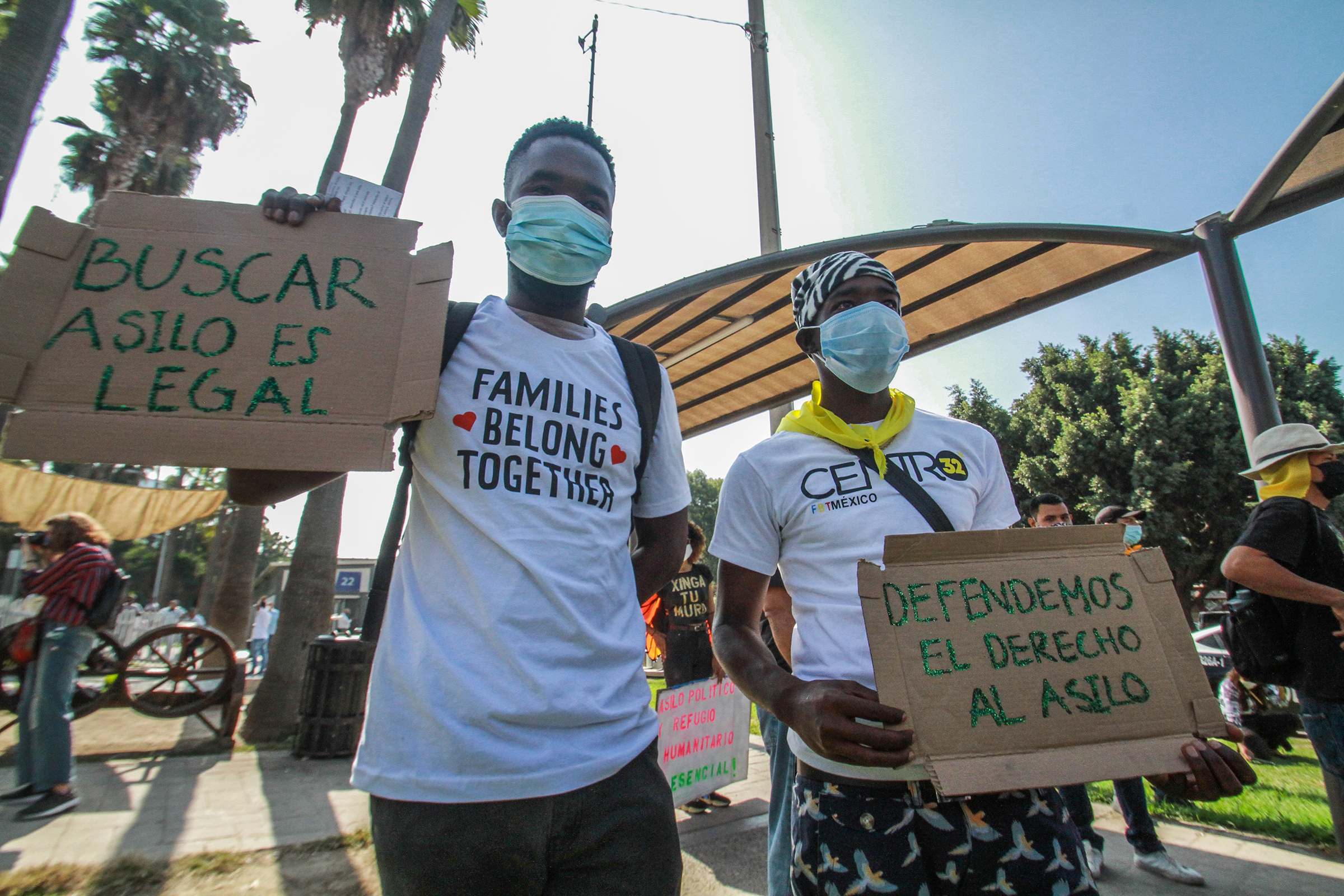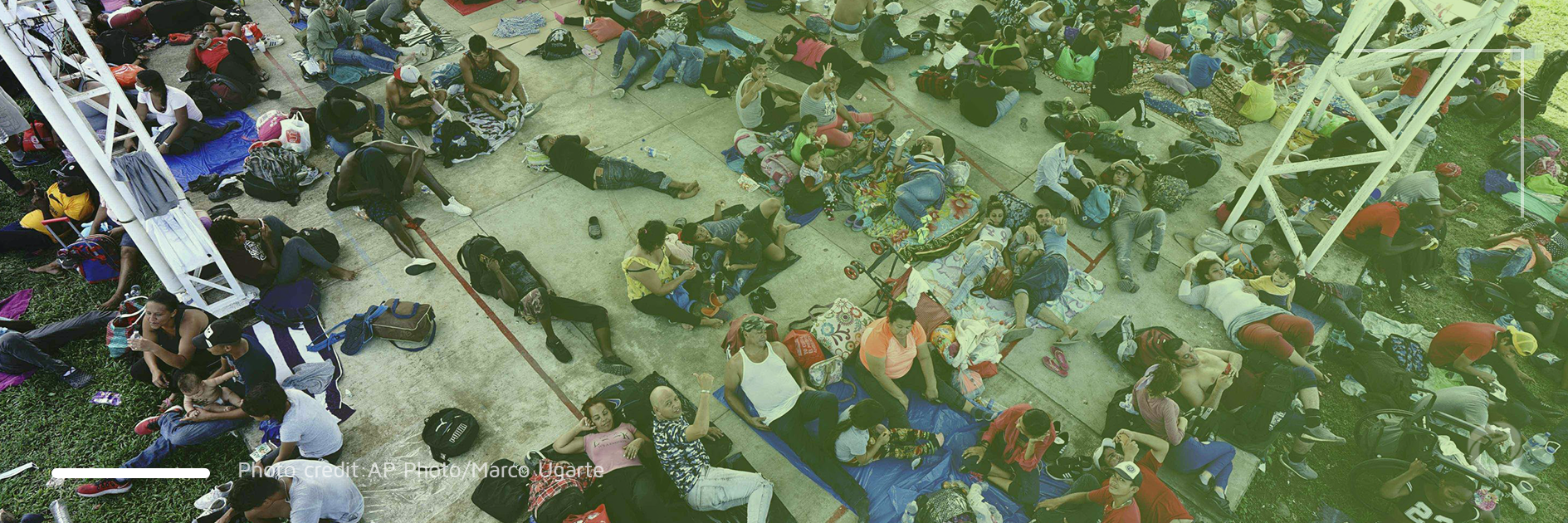Thousands of Haitian asylum seekers are trapped in southern Mexico as they try to reach the US. Most have come from Brazil or Chile where they emigrated to in the mid-2010s. As the ongoing pandemic has slashed their chance of finding work in those two countries, they have set off on a journey to the US in an attempt to find some way of making a living.
The Haitians are stuck along a busy two-lane highway outside of Tapachula, a Mexican city located in the southern part of the country near the border with Guatemala. The city has now turned into a key migrant point with a long queue forming outside a support center with some of the migrants waiting to apply for asylum. The Mexican authorities have promised to provide free transport to relocate them to other sites within the country although the majority of the asylum seekers want to cross the US border.
Dire living conditions
Migrants and human rights activists have reported the terrible living conditions that people are forced to face. Although the Mexican authorities have promised to provide buses to take asylum seekers to other parts of Mexico, the vehicles are infrequent, irregular, and arrive without prior warning. People can only board the buses when they have received a QR code from immigration officials. Some migrants have reported that the authorities have demanded US$400 dollars from them in exchange for a seat on a bus despite nobody knowing its destination.
While waiting for buses, people have to sleep in a park or in the Olympic Stadium in Tapachula which are both lacking basic services. They cannot move any further without the permission of authorities otherwise they may be detained and deported. People, including children and pregnant women, sleep surrounded by rubbish with no access to food and water. During the day they have no shelter against the heat of the burning sun.

“They treat us like animals,” Haitian Barcena Jean told the US media outlet, NPR. She added that she had been sleeping in the park for more than a week in the hope of getting a seat on a bus.
“We’ve never seen such a situation here, one so dramatic, so terrible and so poorly managed by the National Migration Institute (Mexico’s immigration agency). This is a humanitarian emergency,” commented Enrique Vidal, a migrant activist with the Fray Matías de Córdoba Center for Human Rights in Tapachula.
“This is part of the immigration authorities’ policy of dehumanizing and humiliating the migrants. They just hope the Haitians will give up,” stated Yamel Athie, a local activist and psychologist.
The Mexican authorities have relocated some of the migrants to a stadium in Chiapas where they are awaiting the processing of asylum applications but the UN Children’s Agency, UNICEF, has said that the situation there is not much better than in Tapachula.
“The situation that these children are in is worrying. They are in the sun all day in conditions that lack hygiene,” said Isabel Valesco Luna, Head of UNICEF’s office in Chiapas.
According to her, children made up about a third of the population in the queue last week.
Moreover, the bureaucratic process is progressing very slowly as there are fewer than 50 asylum claim officers in Mexico’s refugee assistance program who can process asylum applications.
The range of migration
The Mexican authorities estimate that the majority of migrants in Tapachula come from Haiti and the Ministry of Internal Affairs assesses that by the end of this year about 130,000 migrants will have applied for some type of protection in Mexico with almost half of those applications being from Haitians.
Mexico has reported a seven-fold increase in the number of asylum applications from 2020 to 2021. In 2020, the Mexican authorities received 5,935 applications whereas, between January and November 2021, this number rocketed to 47,494. According to some estimates, more than 60,000 Haitians have left South America in recent months with their destination being the US.

